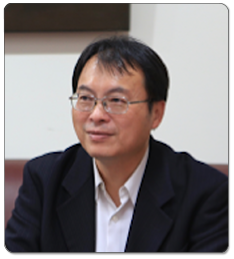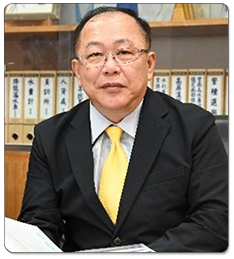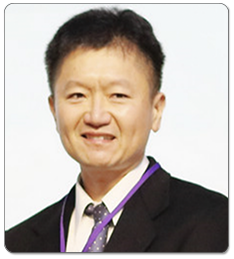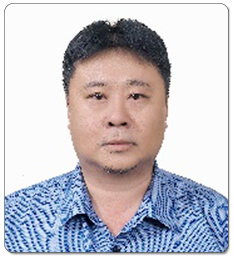9/11(Wed.) pm2:00~5:00
Moderator

Deputy Director General, Water Resources Agency, MOEA
Yi-Fung Wang
Deputy Director Yi-Fung Wang received his Ph.D. degree in Civil Engineering at National Taiwan University. He was awarded by the Water Resource Agency as Outstanding Personnel in 2001 and by the Ministry of Economic Affairs as Model Civil Servant in 2010. Dr. Wang’s dedication in Water Resource Agency are respectable including development of science and technology in water resources, water conservation, water-saving policy, inundation warning system, and emergency response to drought.

President, Taiwan Water Corporation
Tin-Lai Lee
Mr. Lee is currently the President of Taiwan Water Corporation with the experiences as Director of Water Supply Department 、Director of Water Loss Management Department 、Director of 6th Branch Office 、Chief Engineer and Vice President of Taiwan Water Corporation . He works for Taiwan Water Corporation more than 36 years and is also a certified professional Environmental Engineer of Taiwan.
Keynote Speech

Professor, Department of Bioenvironmental Systems Engineering, National Taiwan University
Ming-Che Hu
・ Research: Water resources management, machine learning and hydrological data analysis,
optimization, uncertainty analysis
・ Adjunct Professor, Master Program in Statistics, National Taiwan University
・ Researcher, Hydrotech Research Institute, National Taiwan University
・ Academic Committee, Taiwan Agricultural Engineers Society
The title of speech
Spectrum network optimization for water resources management
Short abstract of speech
The research employs a network optimization model to simulate and analyze water resources management. Since rainfall, river flow, groundwater, water storage, crop production, and water demand within the water resources system are time-dependent functions, allocating water resources and water resource management strategy itself becomes a time-dependent management problem. In order to analyze the time-dependent network optimization of water resources management, the study integrates network optimization with time series spectrum analysis for water resources systems. The proposed framework holds practical significance for guiding the implementation of water resources management and providing a scientific basis for decision-making.

Associate Professor, New York University, Tandon School of Engineering
Andrea Silverman
Dr. Andrea Silverman is an Associate Professor of environmental engineering at the New York University Tandon School of Engineering. Dr. Silverman’s research focuses on water quality, wastewater treatment, and urban flooding, with an overarching goal to protect public health and environmental quality. In addition to laboratory-based research on disinfection of waterborne pathogens, wastewater-based epidemiology, and the design of natural wastewater treatment systems, Dr. Silverman works on applied urban projects, including FloodNet and a collaboration with New York City to develop and implement the City’s wastewater surveillance program for COVID-19. Through these projects she has collaborated with local and federal government agencies, and community-based organizations in New York City.
The title of speech
Applying IoT Sensors for Hyperlocal Urban Flood Monitoring in New York City
Short abstract of speech
Flooding is one of the most dangerous and costly natural hazards, and has a large impact on infrastructure, mobility, and safety. Despite the disruptive impacts of flooding, there is very little quantitative data available on the occurrence, frequency, or extent of urban floods. To address this, our team, FloodNet, has been designing, building, and deploying low-cost, ultrasonic sensors to systematically collect data on street-level floods. FloodNet is a partnership between academic researchers (New York University and City University of New York) and NYC municipal agencies working in consultation with community organizations. The innovative FloodNet sensors are designed to be compact, rugged, low-cost, and deployed in a manner that is independent of existing power and network infrastructure, to allow deployment of a hyperlocal, city-wide sensor network. Thus far, FloodNet has: (1) designed a low-cost flood sensor device, (2) developed networking infrastructure to collect and transmit data, (3) released an online data dashboard for the public (https://dataviz.floodnet.nyc), (4) instituted a community engagement program, and (5) installed over 150 sensors on NYC streets with the goal of deploying 500 by 2025.

Executive Deputy General Manager, Stantec Consulting Services Inc., Taiwan Branch
Paul Chuo
・PhD in Civil Engineering
・Stantec Consulting Services Inc.
・ Sydney Water Corporation
The title of speech
Transforming for Smart and Resilient Water Systems
Short abstract of speech
Water utilities today face a myriad of challenges, from aging infrastructure and labor shortages to the escalating impacts of climate change. In this complex landscape, Artificial Intelligence (AI) emerges as a powerful tool, offering an innovative and effective approach to water management. Lienchiang County's Smart Water journey exemplifies this transformative solution, demonstrating how smart solution can revolutionize water utilities. This innovative approach not only addresses current challenges but also lays a solid foundation for future AI development in the water sector. By implementing smart water meter installation and collecting vast amounts of data, we are creating an ideal environment for advanced AI applications. As we navigate this digital transformation, our journey towards more resilient and efficient water systems continues to evolve, with each step bringing us closer to a future where AI plays a central role in water management.

Manager, Industrial Technology Research Institute
Yao-Long Tsai
1.Industrial Technology Research Institute Senior Engineer, since 2007
(Job responsibilities include pipeline leak monitoring and detection, acoustics and vibration
engineering, assessment of pipeline and equipment integrity and suitability, artificial intelligence
applications, and Welding engineering)
2. PhD in Mechanical Engineering from National Chiao Tung University, 2010
The title of speech
Mobile Smart Leakage Rapid Screening and Early Warning System in Pipeline Networks
Short abstract of speech
This technology integrates AIOT and 5G technologies to develop a rapid screening system for detecting leaks in water supply networks, aimed at addressing the issue of high leakage rates domestically. In the technical development phase, personnel first carry multiple smart probes and quickly place them on the water meters in the network to conduct broad-area leak screening, narrowing down suspected leakage areas. After completing the detection, personnel can quickly move to the next network for leak detection. Each probe installation takes less than 1 minute, and the entire detection process takes less than 10 minutes. The overall detection efficiency is superior to traditional acoustic meter detection methods, which typically require over 5 days for detection. For pipe sections with low and indistinct signals, an AI-assisted recognition module has been developed to help personnel perform more precise diagnostics and localization on-site. Currently, in collaboration with Taiwan Water Corporation, approximately 334 excavation verification cases have been conducted, achieving an average accuracy rate of over 95%, which is significantly higher than the 70% accuracy of manual detection. Additionally, this technology can limit the repair excavation area to within 1 square meter, accelerating overall repair efficiency and reducing disruption time for the public. This system not only improves the accuracy and efficiency of leak detection but also effectively reduces the repair scope and time, greatly enhancing the management and maintenance of water supply networks.